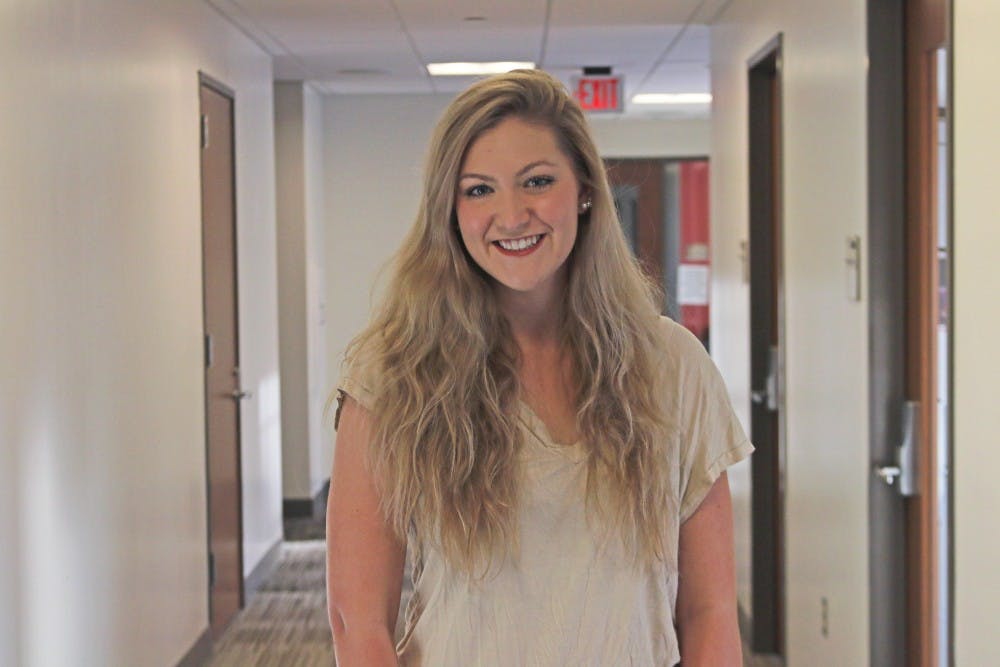As far back as I can remember, I’ve struggled to accept my body.
I remember being no older than 11 and begging my mom not to make me go into the Macy’s dressing room. I hated playing with Barbies. I envied the girls who could fit into Abercrombie and Fitch and Lululemon.
I went to an affluent private school in a conservative area, one that emphasized perfection in all aspects, including personal appearance.
As an overweight theatre kid, I felt I didn’t make the cut.
As I grew older, my peers made sure to point out our physical differences in the locker room and during gym class. My friends would say, “You’d be so pretty if you were thinner,” or suggest I opt for a salad for a meal.
And, even though I’m no longer that kid, their comments still resonate with me and within the bounds of modern culture.
The phrase “body positivity” has grown into a massive movement throughout the last ten years.
Celebrities like Beyoncé and Zendaya have launched size-inclusive clothing lines that give plus-size women fashionable clothing options. In 2019, Victoria’s Secret hired a size 14 model after years of public criticism.
But even now, on the heels of “hot girl summer,” we still have work to do.
This June, plus-size model Ashley Graham posted a summery swimsuit picture on her official Instagram, and the comments section went wild.
Besides the usual slew of naysayers, many of her 9.2 million followers sounded off in the comments section, calling her things like “brave” and “courageous” for showing off her curvy figure.
Graham responded to this with another post picturing her sarcastically flipping her hair, captioned, “When they call you ‘brave,’” showing she was clearly over everyone’s so-called “compliments.”
Enjoy what you're reading?
Signup for our newsletter
Fans were confused, to say the least. Many of them had meant brave and courageous as a compliment, so why was she angry?
Their word choice is indicative of a much deeper societal issue, one that both demeans women for being self-confident and criticizes plus-sized women.
Having a curvy figure isn’t anything to be ashamed of, and the word brave implies that plus-sized women should be embarrassed of their physique otherwise.
That’s the opposite of what the body positivity movement is all about.
Graham isn’t the only one. “Truth Hurts” singer, Lizzo, had a perfect response when she faced comments similar to Graham’s following her performance at the 2019 VMA’s. “If you saw Anne Hathaway in a bikini on a billboard, you wouldn't call her brave. I just think there's a double standard when it comes to women.”
She’s right. No one would call Gigi Hadid or Kendall Jenner brave if they posted a scantily clad photo, so why are we saying it to Graham and Lizzo and other plus-sized women?
As a society, we focus heavily on racial, gender and sexual equality. While all of those are incredibily important, we’re still not talking about weight discrimination.
In fact, while discrimination based on race, age, gender, religion, sexual orientation or natural origin is illegal on the federal level, weight discrimination is still legal in 49 states.
A 2008 study that sampled both overweight and healthy-weighted American individuals found that approximately ten percent of women and five percent of men felt that they had been rejected by an employer or had received poor treatment due to their weight.
In 2014, the Journal of Applied Psychology found that “very heavy” women (those with a BMI above 30) earned almost $19,000 less than their average-weight counterparts.
The body positivity movement has made huge strides to educate people regarding what really constitutes physical and mental wellness, but there is still a long way to go in creating a society free from weight discrimination and body-shaming.
Societal stigma regarding weight and beauty is hard to notice and even harder to stop, but it begins with the way we view plus-sized women. They should be considered brave or inspirational not because of how they look, but because they are powerhouses in their respective fields.
As for me, I wish I could say that I wasn’t occasionally bothered by my weight or how I look. I still hate dressing rooms and I think Barbies will always freak me out. But, what I can say is I’m proud to exist in a day and age where acceptance is an achievable goal, and I thank those around me for supporting me in my journey to accepting myself.




